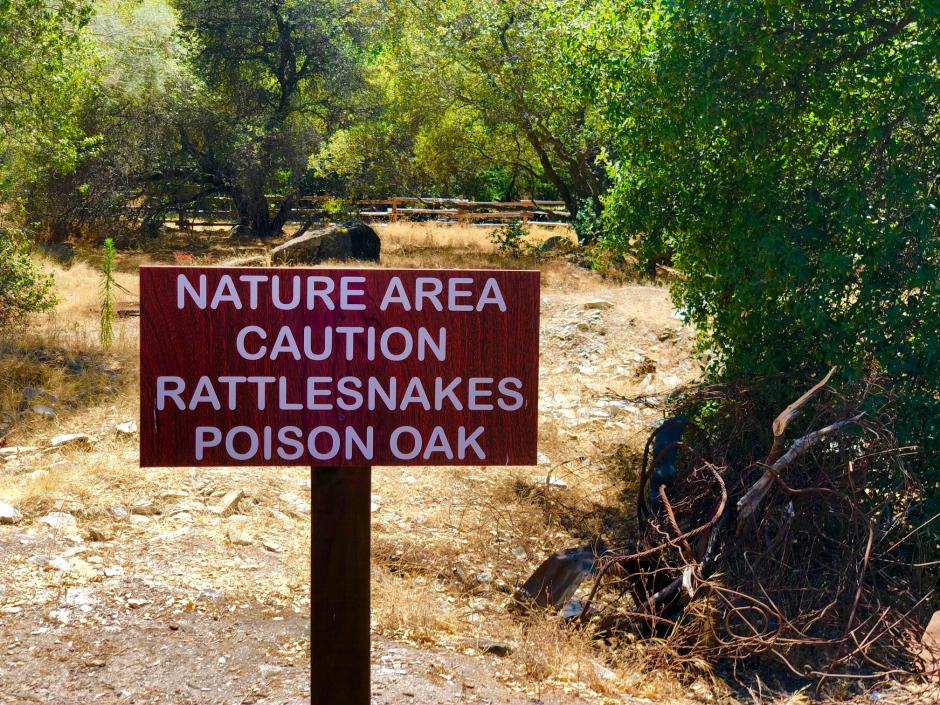Be alert and be rattlesnake safe
The City of Rocklin contains more than 585 acres of parkland and more than 700 acres of publicly maintained open space. The integration of green spaces into the community is often cited as one of Rocklin’s most appealing aspects, offering residents ample opportunity to enjoy the outdoors and providing habitat for wildlife.
While most local creatures don’t pose a threat to people, the City of Rocklin would like to remind everyone that venomous rattlesnakes are part of California’s ecosystem, and Rocklin is no exception.
The arrival of warmer weather brings increased snake activity. Although rattlesnakes are generally not aggressive and most native snakes are not dangerous (including the gopher snake or king snake), experts recommend precautions to reduce the likelihood of an encounter with a rattlesnake.
- Be alert. Like all reptiles, rattlesnakes are sensitive to the ambient temperature and will adjust their behavior accordingly. After a cold or cool night, they will attempt to raise their body temperature by basking in the sun midmorning. To prevent overheating during the hot days of spring and summer, they will become more active at dawn, dusk or night.
- Avoid tall grass, weeds and heavy underbrush where snakes may hide during the day. If walking through bushy, wild areas, wear boots and long pants, never go barefoot or wear sandals. Startled rattlesnakes may not rattle before striking defensively.
- Do not step or put your hands where you cannot see. Step ON logs and rocks, never over them, and be especially careful when climbing rocks. Check out stumps or logs before sitting down.
- Check the area around tables and barbeques before using them.
- Do not touch or disturb a snake, even if it appears dead. Don’t mistake apparent stillness as a safe opportunity to investigate.
- Teach children to respect snakes and to leave them alone.
- Leash your dog and keep them on designated trails. Dogs are at increased risk of being bitten due to holding their nose to the ground while investigating the outdoors. Speak to your veterinarian about canine rattlesnake vaccines and what to do if your pet is bitten.
If you see a rattlesnake in a city park, leave it alone and move slowly and carefully away. Please contact the Parks and Recreation Department at (916) 625-5200 when it is safe to do so.
If bitten by a rattlesnake, the UC Davis Medical Center recommends a person seek immediate medical attention. Keep calm, do not run and keep the affected extremity below heart level until you can be transported to a medical facility. Remove watches, rings, etc, which may constrict swelling.
Do not apply ice, do not use a tourniquet or constricting band, do not try to suck out the venom, and do not use any device to cut or slice the bite.
Where to get help if bitten by a rattlesnake:
Immediately call 1-800-222-1222 to reach poison information experts who are available 24 hours a day, 365 days a year. Learn more at the California Poison Control System website: http://www.calpoison.org.
For more information on staying rattlesnake safe, visit the websites of the California Department of Fish and Wildlife or the UC Davis Medical Center.


